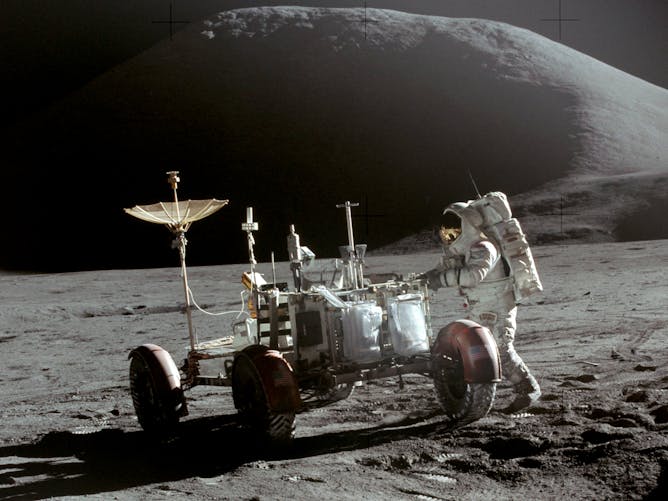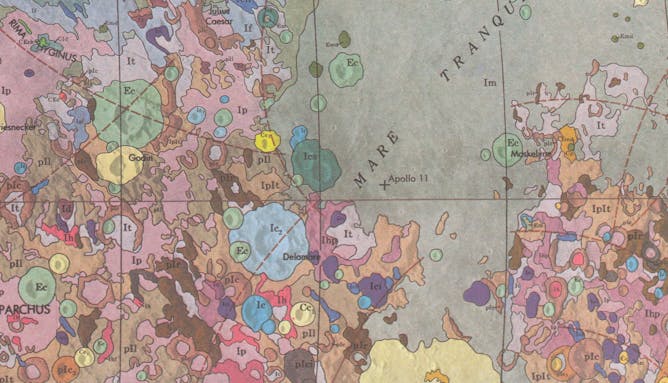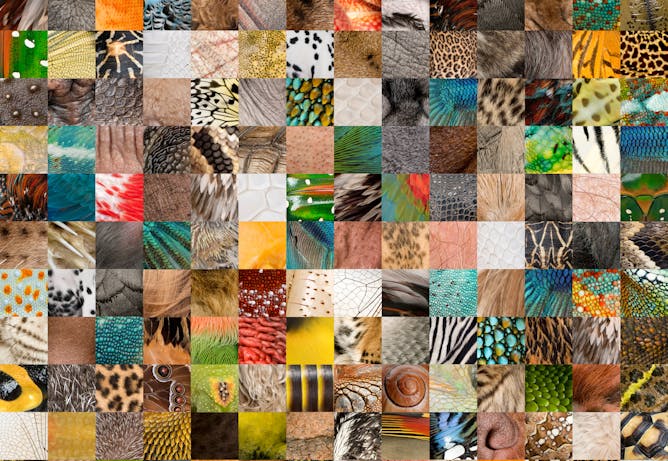|
|
|
Editor's note
|
|
The moon has captured the human imagination since time immemorial, with generation after generation looking up at it and wondering what it would be like to be there. Just a few centuries ago, many astronomers thought the moon was much like our own planet – complete with vegetation and perhaps even life. And only 70 years before the Apollo 11 moon landing, science fiction writer HG Wells, who made so many accurate predictions about the future, imagined it as being inhabited by an extraterrestrial civilisation of insect-like creatures in his book The First Men in the Moon.
So it’s no wonder that half a billion people across the world tuned in to see for themselves what it was like to be on the moon when Neil Armstrong took his first small step on it exactly 50 years ago today. The footage unveiled a world starkly different to the one in our imagination – a grey and arid landscape, with no insect in sight.
But the old picture of the moon, full of oceans and rainbows, lives on – for example in lunar cartography. Names of features such as the “Sea of Clouds” (Mare Nubium), “Bay of Rainbows” (Sinus Iridum) and “Marsh of Sleep” (Palus Somni) are still being used today. This doesn’t mean that the maps, which are just as colourful as they sound, are scientifically useless. Thanks to the Apollo missions, geological maps of the moon have in fact helped transform our understanding of the moon.
If this still isn’t enough weekend moon reading for you, check out some of the other stories The Conversation has published as part of our global series To the moon and beyond. Find out how the Apollo crews miraculously survived threatening space radiation, whether your mobile phone could take you to the moon and why it would have been impossible to fake the footage of the moon landings.
Also have a listen to our podcast series, which was featured on BBC Radio Podcast Hour this week. From how the world reacted to the moon landings and why they generated so many conspiracy theories to the moon’s role in future of space exploration, this series features top experts from around the world.
This week we also learned why leadership experts think Boris Johnson, the leading candidate for prime minister, lacks both character and competence. And if you’re looking for a drink to go with your weekend reading, try pink wine – it’s increasingly fashionable.
|
Miriam Frankel
Science Editor
|

|
|
|
|

Apollo Lunar Rover - Apollo 15.
Irwin with the LRV on the Moon
Jim Wild, Lancaster University
In its Cold War race to the moon, the US played Russian roulette with solar storms.
|

Geologic map of the near side of the moon by Wilhelms & McCauley in 1971.
USGS
David Rothery, The Open University
We have the Apollo missions to thank for a lot of our geological knowledge about the moon.
|

Two different directions.
Yui Mok/PA Wire/PA Images
Michael Smets, University of Oxford; Tim Morris, University of Oxford
Two leadership experts weigh up the characteristics of the Conservative Party leadership hopefuls.
|

Rosé has become one of the millenials’ favorite drinks in just a few years. Why?
Vincenzo Landino/Unsplash
Richard C. Delerins, ESSEC
The millennials have boosted rosé consumption: in the United States alone, 65% of them declare themselves "rosé drinkers". How can this overall success be explained?
|

Eric Isselee/Shutterstock.com
Henry Taylor, University of Birmingham
Scrapping the idea of a species is an extreme idea – but perhaps a good one.
|
|
|
-
Howard Berry, University of Hertfordshire
Conspiracy theorists claim NASA used the Apollo special camera to stage the moon landings in a studio and then slowed down the footage to make it look like there was less gravity.
-
Graham Kendall, University of Nottingham
Here is how our mobile phones compare with the computer that landed man on the moon in 1969.
-
Peter Taylor, Queen's University, Ontario
Mathematician Peter Taylor taught high school math to prepare to develop a new 'RabbitMath' curriculum that emphasizes collaborative creativity and learning to work with complex systems.
-
Vasu Appanna, Laurentian University
The microbiome is one of the largest organs in the body. Understanding its constituents and their functions will lead to breakthroughs in health care and well-being practices.
-
Melody Zou, Warwick Business School, University of Warwick
App developers deploy three key tricks to make you a more loyal and proactive user.
|
|
| |
| |
| |
| |

|
| |
| |
| |
Featured events
|

|
Meadow Suite, Park House, University of Reading Whiteknights Campus,, Reading, Reading, RG6 6UA, United Kingdom of Great Britain and Northern Ireland — University of Reading
|

|
King's Manor, York, York, YO1 7EP, United Kingdom of Great Britain and Northern Ireland — University of York
|

|
The Forum, Streatham Campus, Exeter, Devon, EX4 4QJ, United Kingdom of Great Britain and Northern Ireland — University of Exeter
|

|
University of Essex, Wivenhoe Park, Colchester, Essex, CO4 3SQ, United Kingdom of Great Britain and Northern Ireland — University of Essex
|
|
|
|
| |
| |
| |
| |
| |
|
|
|
|
|
|
|